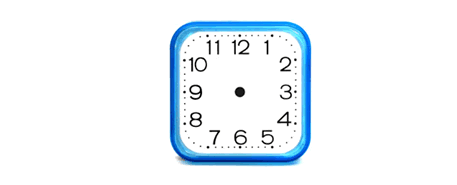15 Nov No Time

© Ruca
English Follows | Chinese Follows
Es la excusa de nuestra era: ?no tengo tiempo?. Lo dicen todos. Lo decimos todos. Lo curioso es que esta expresión se utiliza especialmente para justificarse de nuestra poca actividad intelectual: ?no tengo tiempo para leer? y ?no tengo tiempo para pensar?, son algunas de nuestras frases preferidas. Y lo decimos sin ningún rubor.
No nos atreveríamos a decir, bajo ningún concepto, ?no tengo tiempo para trabajar?, o ?no tengo tiempo para reuniones?, o ?no tengo tiempo para comidas largas?. Pero ?no tengo tiempo para leer?, o ?para aprender?, o simplemente ?para ver?, está socialmente bien visto. Lo raro sería que tuvieras tiempo para hacerlo: sería una clara evidencia de que eres un holgazán, o, peor aún, un inquieto.
?Trabajo, luego no aprendo? debería ser el lema de la acelerada economía del consumo. Produce y sobrevivirás para consumir. Pero no pierdas el tiempo leyendo; invierte neuronas en fútbol.
Sinceramente, creo que seguir anclados en este paradigma del no-tiempo como excusa sería una verdadera barbaridad en el mundo hacia el que vamos, en el que no importará nada lo que hoy haces bien sino lo que sabes hacer muy bien, que es lo que te permitará sobrevivir mañana. La economía a la que vamos es una de desaprendizaje constructivo: destruir paradigmas para fundar nuevos. Es lamentable que la clase de los profesionales que deberán cambiar el país en los próximos años (porque de seguir como ahora no hay quien lo salve de convertirse en una Florida de segunda en una Europa de viejos, entre ellos yo mismo) se vanaglorie de no disponer de tiempo para leer, o para aprender. Si ellos no cambian en esto, el país no va a cambiar.
Pero hay quién ve la ansiedad por la escasez de tiempo que todos experimentamos como una interesante fuente de oportunidades. Véase, por ejemplo, el caso de la franquicia MinuteClinic, instalada en los grandes centros comerciales norteamericanos. Frente al modelo ?tradicional? de atención médica básica, consistente en hacer cola en un ambulatorio, esta empresa propone una asistencia rápida (?you?re sick, we are quick?, es su lema), aunque sólo para las enfermedades leves que aparecen en su catálogo (típica: resfriado), porque quién atiende a los pacientes son enfermeras cualificadas, no médicos. Con ello consiguen una sintonía con lo que el mercado pide: asistencia instantánea (instant relief).
¿Otra oportunidad? La emprendedora Karin Spitzer desarrolló toda una línea de gadgets con el logo NoTime, ver la entrevista con Spitzer en Wired. Suerte que uno de los lemas de Karin que más éxito tuvieron asegura que nos extinguiremos como especie: ?no time for sex?? Y así se acabó el problema. Ver también el proyecto n0time, un salvapantallas en red.
English
‘No time’
It’s the excuse of our age. Everyone says it. We all say it. The funny thing is that we say this in particular to justify our scant intellectual activity. «I haven’t got time to read» and «I haven’t got time to think» are two of our favourite expressions. And we’ve got no qualms about it.
We wouldn’t dream of saying «I haven’t got time to work», «I haven’t got time for meetings» or «I haven’t got time for leisurely lunches». On the other hand, though, «I haven’t got time to read» or «to learn», or simply «to see» are quite socially acceptable. In fact, you’d be seen as odd if you actually had time to do it: it would clearly prove you were lazy or, even worse, had interests.
«I work, therefore I learn nothing» ought to be the maxim of the high-speed consumption economy. Produce and you’ll survive to consume more. But whatever you do, don’t waste your time reading; invest your neurones in football.
Seriously, though, I really do believe that it would be unforgivable to remain shackled to this paradigmatic excuse of ‘no time’ in tomorrow’s world, where the important thing won’t be what you do well today, but rather what you can do very well – this is what will enable you to survive tomorrow. Tomorrow’s economy is one based on constructive unlearning: shattering paradigms to create new ones. It is deeply regrettable that the class of professionals who will be responsible for changing the country in the coming years (for change it must, because if things carry on as they are, no-one will be able to stop it becoming a second-class Florida in a Europe of the old, myself included) boast of not having time to read or learn anything. If their attitude doesn’t change, then neither will the country.
Some people, though, see the concern for the scarce amount of time we’ve all got as an interesting source of opportunities. See, for instance, the case of the MinuteClinic franchise, which can be found in US shopping malls. As opposed to the traditional basic healthcare model, which consists of queuing up at a clinic, this company offers fast service (its slogan is «You’re Sick. We’re Quick»), albeit only for the common illnesses listed in its catalogue (a typical one being the common cold), since patients are seen by qualified nurses, not doctors. In this way, they successfully meet a market need: instant relief.
Another opportunity? The entrepreneur Karin Spitzer has designed a range of gadgets bearing the logo no time, ee an interview with Spitzer in Wired. Interestingly, one of Karin’s most popular slogans would seem to suggest that we’re doomed to extinction as a species: «no time for sex»… And the problem’s solved. See also the project n0 time, a network screensaver.
没时间
我们的借口就是 ?没时间?,都这么说,大家都一样。奇怪的是这种表达方式特别会用在我们已经少得可怜的文化活动中:?我没时间看书?,还有?我没时间思考?,这都是我们爱说的句子。而且说的时候绝不脸红。
一般情况下,我们不敢说?我没时间工作?,或者?我没时间开会?,亦或?我没时间吃大餐?,但是?没时间看书?,或者?没时间学习?,甚至简单的?没时间 看?,都极具普遍性。让人奇怪的是,就算你有时间做这些:那你肯定被认为是个游手好闲的家伙, 说得更难听些,无所事事。
?工作,所以我不学习?应该算是促动消费经济的箴言。为了消费而生产生存。干吗要浪费时间看书,还不如把那点儿神经花在足球上。
老实说,我觉得如果继续这种?没时间?的游戏,我们未来的世界就真的无药可救了。将来,今天做得好 并不重要,你知道怎样做好 才是明天生存的钥匙。我们要发展的经济是一种无知的建设 :毁掉旧范例,建设新事物。 可惜的是那些接下来几年肩负改变国家重任的专业人士(因为现有情况还继续下去的话,我们的国家就会变成一个聚集欧洲老年人的第二个佛罗里达,其中也有我的 责任)也自认为没时间看书,没时间学习。如果这些人都不能改变想法, 我们的国家如何改变。
不过,有人把这种没时间的焦虑感 看做机遇,大做文章。比如,一分钟诊所1 驾临那些美国大商业中心。面对?传统?的基础医疗,也就是要在医院排队,这个公司设置了快速医疗(?you?re sick, we are quick?, 这就是他们的座右铭。),当然只是针对不严重的病人(典型:感冒)因为出来接待病人的是护士,而不是医生。据此我们可以得知市场需求: 快速医疗 (instant relief)。
还有什么机遇?很有冲劲儿的卡琳?斯白泽(Karin Spitzer)发展了一系列的?没时间?2. 商标。幸运的是,其中最有成就的应属于那个可以让我们种族灭绝的:?没时间做爱???3 。这样的话,问题也就解决了。
1. 参考 Minute Clinic
2. 参考 NoTime 参阅杂志 Wired对斯白泽(Spitzer)的采访
3. 参考 n0time计划, 一种在线的屏保装置



Sorry, the comment form is closed at this time.